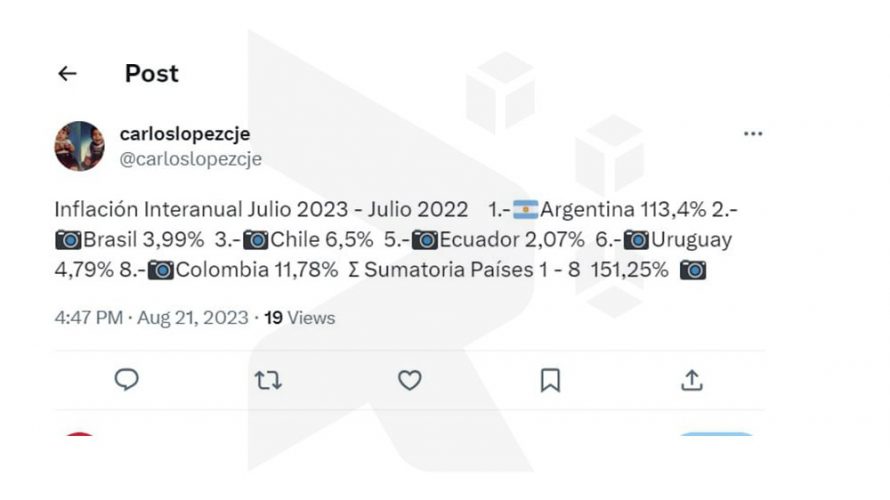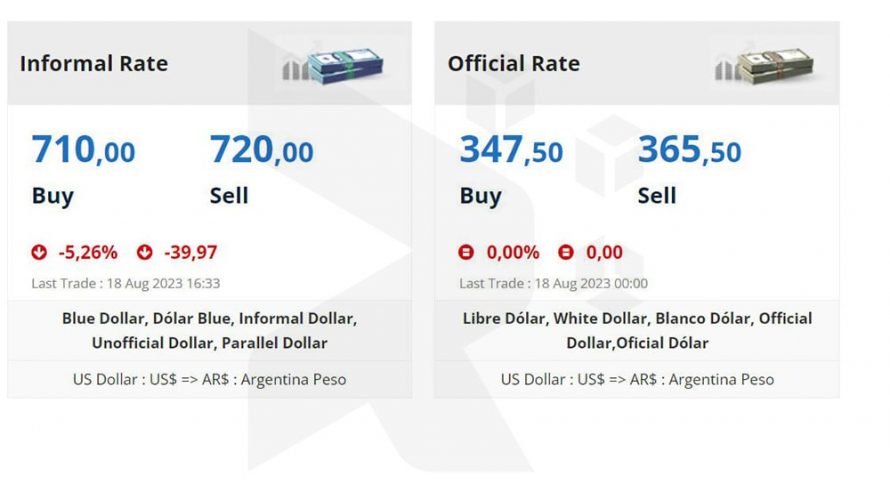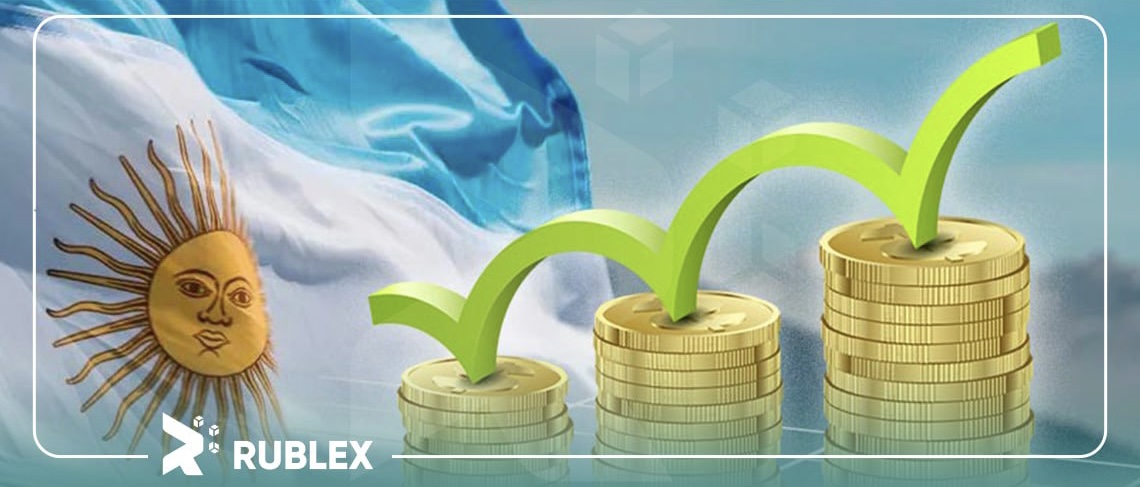Reports from within the industry suggest that Argentina is witnessing an increase in the purchase of stablecoins due to the escalating prices of the black market dollar.
According to Globo, the country finds itself entangled in what is being dubbed as the “most severe political crisis in 21 years,” marked by rampant hyperinflation that is steadily eroding the worth of the national fiat currency, the peso.

Inflación Interanual Julio 2023 – Julio 2022 1.-🇦🇷Argentina 113,4% 2.-📷Brasil 3,99% 3.-📷Chile 6,5% 5.-📷Ecuador 2,07% 6.-📷Uruguay 4,79% 8.-📷Colombia 11,78% Σ Sumatoria Países 1 – 8 151,25% 📷
— carloslopezcje (@carloslopezcje) August 21, 2023
Bloomberg recently covered a significant development:
“At present, the official exchange rate stands at 287 pesos for a single dollar, whereas the illicit market registers a rate of approximately 600 pesos per dollar on the streets of Buenos Aires.”
Since 2019, the government has imposed a $200 monthly limit on foreign currency purchases per individual, a restriction that has compelled numerous individuals to turn to underground markets.
In the backdrop of a scarcity of physical dollar bills within Argentina, some individuals have opted to embrace stablecoins pegged to the USD.
Citing Sebastian Serrano, the visionary behind the Brazilian cryptocurrency trading platform Ripio, Globo revealed that their own dollar-anchored digital token was “trading at 726 pesos on Friday, August 18.”
This figure stands at “5.3% lower” than the cost associated with the “blue dollar,” a term referencing Argentina’s informal, off-the-books exchange rate, on the very same day.

According to the media outlet’s insights, Argentinians are embracing stablecoins primarily as a means to safeguard their savings’ value, rather than employing them for day-to-day transactions.
Globo’s coverage also highlighted that certain individuals in Argentina are utilizing stablecoins to “purchase airline tickets” and facilitate payments for “cargo shipments.”
Furthermore, the report underscored a growing trend where individuals who “engage in remote work for international firms opt to receive their payments in cryptocurrency.”
In fact, it’s suggested that more freelancers in the nation are advocating for compensation in crypto rather than traditional fiat currencies.
Sebastian Serrano disclosed that the demand for Ripio’s USD-pegged token has surged significantly, experiencing a “fourfold increase” since the conclusion of the recent presidential primary elections earlier this month.
The primary elections witnessed the emergence of Javier Milei, representing the Libertad Avanza party, securing nearly 33% of the total vote share, positioning him as the frontrunner in the upcoming elections.
32,57% Javier Milei va a ser presidente🇦🇷 pic.twitter.com/eMTpZkcXCW
— Milei 2023 🇦🇷 (@JMPresidente23) August 14, 2023
Cryptocurrency Momentum Grows Amidst Argentina’s Changing Landscape
Javier Milei, a contender in Argentina’s forthcoming elections, has expressed admiration for Bitcoin (BTC) and maintains a connection to the crypto world, even though he supports dollarization as a policy.
Sebastian Serrano, the founder of Ripio, a cryptocurrency trading platform, asserted that the surge in Milei’s popularity has prompted numerous investors to explore the realm of cryptocurrencies
Serrano speculated that Milei’s inclination toward a “crypto-friendly” stance might be more pronounced compared to left-wing administrations, given Milei’s libertarian leanings towards the private sector.
Serrano further remarked that Milei would likely defend individuals’ rights to acquire cryptoassets.
However, Serrano tempered expectations, noting that a potential Milei-led government might not actively nurture the crypto industry like Hong Kong or the United Arab Emirates, nor engage in the creation of a sovereign digital currency similar to Brazil.
Addressing social media speculations, Serrano downplayed notions of Milei becoming a “Bitcoin president” akin to Nayib Bukele of El Salvador.
“The first thing we have to understand is that the Central Bank is a scam. It is a mechanism by which politicians cheat the good people with the inflationary tax.”
— Alan ₿ Watts ⚡️ (@alanbwt) August 14, 2023
— Javier Milei, likely to be the next president of Argentina #Bitcoin pic.twitter.com/fjqwXLiFiM
According to Serrano:
“Milei lacks familiarity with technology. He isn’t aligned with the Bitcoin community and won’t follow in the footsteps of Bukele, who has a strong enthusiasm for cryptocurrencies.”
However, contrary opinions abound, including within Milei’s own political circle. One member even asserted recently that Argentina was poised to establish itself as a “BTC haven.”
Serrano continued by suggesting that Milei’s “radical perspectives,” highlighted during his campaign, may need to yield ground to more “pragmatic” sentiments within his eventual government. This shift would likely be driven by the necessity to garner support and build consensus.
Argentina's leading presidential candidate, Javier Milei, demolishes a Central Bank themed piñata on live TV 🔴 🔊 pic.twitter.com/Qi6RsPNMzx
— Bitcoin Culture (@BTC_Culture) August 15, 2023





